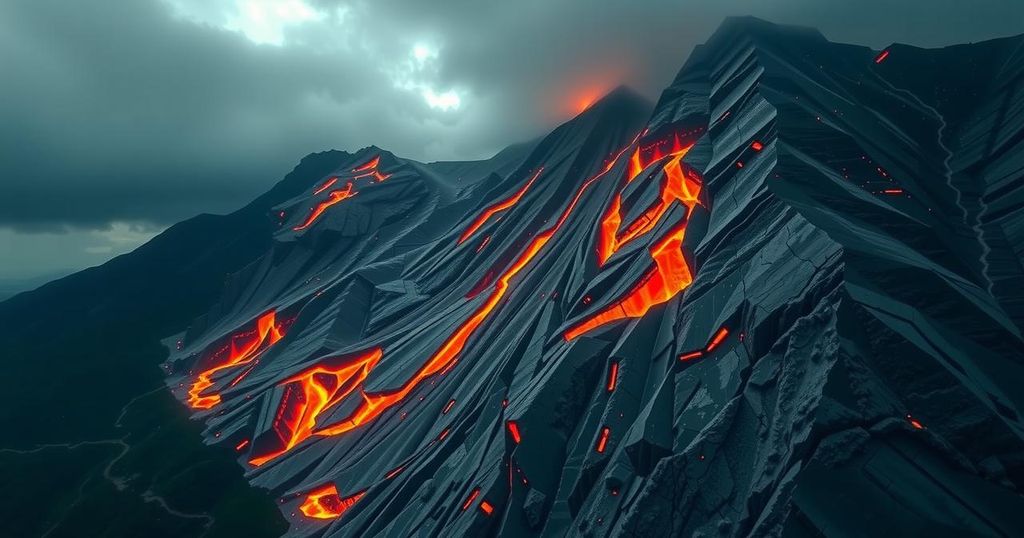Congo Mountain Collapse Exposes Rich Copper Reserves, Sparks Colonialism Debate
A mountain collapse in the Democratic Republic of Congo has revealed substantial copper reserves, igniting discussions about colonial exploitation. This incident occurred in the Katanga region, and the viral footage has raised concerns regarding foreign interests in national resources. The DRC’s copper is vital for the global market, increasing its importance amid rising demands linked to renewable energy and electric vehicles. Public sentiment calls for protecting these assets from external exploitation.
A recent mountain collapse in the Democratic Republic of Congo has uncovered vast copper reserves, igniting discussions surrounding colonialism and resource exploitation. This incident occurred in the mineral-rich Katanga region and has produced viral footage depicting the dramatic scene, where individuals nearby fled as large boulders descended from the mountain. The incident has sparked humor and caution within the online community regarding foreign interest in these newly revealed mineral assets. Copper is a primary resource for the Democratic Republic of Congo, contributing significantly to its economy. The country boasts substantial reserves of high-quality copper, especially in the Katanga region, which houses some of the largest mineral deposits globally. Alongside copper, the region also yields cobalt, uranium, tin, and zinc, enhancing its economic potential amid a global increase in demand for these minerals, particularly as industries pivot towards renewable energy and electric vehicles. Social media reactions to the discovery varied, with many advocating for the protection of Congolese resources from foreign entities. Comments reflecting this sentiment included calls for the restriction of entry to certain nations, emphasizing ownership of the newly uncovered wealth. For instance, one individual remarked, “Hello continental Europe, UK, USA, China – keep your filthy hands away. This belongs to Congo people.” Some users even suggested a complete ban on British entry to safeguard these valuable resources from foreign exploitation. Critically, one user elaborated on the geological dynamics involved, asserting that the collapse was not a natural occurrence but rather a result of extensive mining activity at the site. This mountain collapse presents both an opportunity and a challenge for the Democratic Republic of Congo. As the global market grows increasingly reliant on copper for various industrial applications, the country sits on a critical juncture of capitalizing on its natural wealth while managing the risks of external exploitation and historical injustices related to colonialism.
The Democratic Republic of Congo is renowned for its rich deposits of natural resources, particularly copper, which is among its most valuable economic commodities. The Katanga region, now known as Haut-Katanga Province, is part of the Central African Copperbelt, recognized as the richest mineral belt globally. As global demand increases, particularly in renewable energy sectors and electric vehicle manufacturing, the scrutiny of how these resources are managed and who benefits from them intensifies. The intersection of colonial history and current exploitation begs critical examination and dialogue concerning ownership and sustainable development in resource-rich nations like the DRC.
The collapse of the mountain in the Democratic Republic of Congo has unearthed significant copper reserves, inciting dialogues about ownership, colonialism, and the global market’s demand for minerals. As the nation grapples with the implications of this discovery, it must balance the potential economic benefits against the historical context and the risks posed by external exploitation. The reactions from the public reflect a wider concern about protecting Congolese resources for the benefit of its people.
Original Source: www.hindustantimes.com




Post Comment